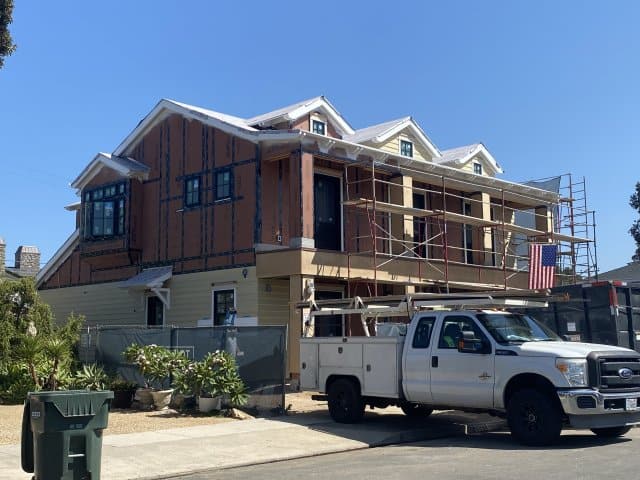Valor Lending Group is now open for ARIZONA Mortgage Loans!
Hey Arizona! Valor Lending Group is here to help you with all of your Arizona mortgage loans needs!
We are ready to embark on your home buying journey with you! We have helped thousands in California and now we are excited to take our services to Arizona. There is no question too big or too small that we won’t be able to help you with. We pride ourselves on our top notch communication skills to tackle any situation that comes our way. Reach out to us today, and one of our loan officers will get back to you ASAP with advice you can trust!

WE OFFER EVERY LOAN IN THE BOOK!
Arizona Jumbo Loans
What Are Jumbo Loans?
These are not the type of loans that were prevalent in the pre-2008 financial crisis, and no longer are the days in which loan applicants can simply state their income on a loan application with virtually no due diligence conducted by the lender.
After the 2008 financial crisis, the sweeping provisions of Dodd-Frank changed the industry substantially, at least in the owner-occupied residential context. Since 2010 Dodd-Frank has required lenders to document a residential borrower’s ability to repay the loan.
Jumbo lenders still want to ensure borrowers can repay their mortgages, they typically require a lower debt to income ratio (DTI) to verify income. They also require a higher down payment and increased reserve requirements. Jumbo loans typically require an increased credit score of 700 or more.
Valor Lending Group features an incredible array of jumbo loans that will allow higher than the typical jumbo loan to value and debt to income ratios as well as lower credit scores and reduced reserves requirements.
Arizona No-Tax-Return Investment Property Loans

What Are No-Tax-Return Investment Property Loans?
Sometimes called “Investment property loans” or “rental loans,” no tax return investment property loans do not consider a borrower’s income in the traditional sense.
The “cash flow” is just the monthly rental amount the property brings in. For example, a property renting for $2,000/month would be attributed a qualifying income of $2,000/month. The main requirement for these investment property loans is that the monthly rents cover the monthly expenses. It is that simple.
Not only is a borrower’s income not considered in the loan application process, investment property lenders do not request income amounts, in fact there is no income verification of any kind. No letters from employers, no W2s, and no pay stubs. Again, the income of the investment property is simply the cash flow of the property.
Arizona Bank Statement Loans
What Are Bank Statement Loans?
These are not the type of loans that were prevalent in the pre-2008 financial crisis, and no longer are the days in which loan applicants can simply state their income on a loan application with virtually no due diligence conducted by the lender.
After the 2008 financial crisis, the sweeping provisions of Dodd-Frank changed the industry substantially, at least in the owner-occupied residential context. Since 2010 Dodd-Frank has required lenders to document a residential borrower’s ability to repay the loan.
Bank statement lenders still want to ensure borrowers can repay their mortgages; they just use bank statements to verify income as opposed to tax returns. Self-employed borrowers are able to document their ability to repay based on business deposits into their personal or business bank accounts, i.e., their true cash flow.
Arizona Hard Money Loans
What are Hard Money Loans?
Hard money lenders are typically private investors or investor groups, pools of funds, life insurance companies, and even pension and retirement funds.
Hard money loans are an alternative to traditional bank lending that allows flexibility and expediency. Neither of them are not required to conform to the same guidelines as traditional financing, such as the standardized Fannie Mae and Freddie Mac underwriting guidelines for loans to be repackaged and sold on Wall Street.
Put simply, a hard money loan is a loan that is secured by a “hard” asset – i.e., real property. Because hard money lenders secure their loans with real property as collateral, they are most concerned with a borrower’s equity in the property (or down payment for a purchase). The maximum amount a hard money lender is willing to extend – or leverage – is based on a percentage of the property’s value. Hard money lenders are most concerned about the Loan-to-Value (“LTV”), that is, the loan amount divided by the value of the property.
Arizona Fix and Flip Loans
What Are Fix and Flip Loans?

Valor Fix and Flip loans are hard money loans used to purchase and rehab a property, and then resell it at a higher value. The Fix and Flip lending market has been quite frothy the past few months. If you are an experienced flipper, you may notice that your old lender of choice has increased rates, decreased LTVs, and in some cases quit funding altogether. For first timers, the market has become substantially hard to break into.
No need to worry however! We have seen a resurgence in fix and flip lending in the past week and are pleased to announce we are funding in 42 states again, and multiple lenders are doing up to 90/100 (90% of purchase and 100% of rehab) with rates in the high 6’s.
These loans do not require tax returns, income/employment, or debt-to-income ratio calculations.
Arizona Construction Loans
What is a Ground Up Construction Loan?

A ground up construction loan is to provide a financing solution to construct a wide variety of real estate properties. They can be single family, multi-family, and mixed use projects. A licensed and bonded general contractor will assist you with plans, entitlements, and get your property shovel ready while solidifying the financing to get the project started.
Valor Lending Group has a number of lending solutions and options allowing you choose the right route to take to secure the luxury property of your dreams.
Arizona Home Loans
Depending on credit, down payment and income, there are many great home loan programs available for both salaried, hourly borrowers, self-employed and real estate investors.
Home loans fall generally into 3 main categories:
- Conventional Home Loans (conforming and non-conforming)
- Government Loans
- Non-Qualified Mortgages (Non-QMs)
1) Conventional Home Loans
Conventional home loans are simply mortgages that are not insured by the federal government. Within conventional loans there are two categories of loans:
- Conforming
- Non-conforming
(a) Conforming Home Loans
Firstly, conforming loans meet the underwriting guidelines of Fannie Mae and Freddie Mac. Those government-sponsored enterprises then buy, repackage and sell the loans as securities in the secondary market.
Conforming loans are often called “agency loans” because they meet the credit and government underwriting matrices Desktop Underwriter (DU) for Fannie Mae, or Loan Product Advisor (LP) for Freddie Mac. The maximum conforming loan limits vary by Arizona county check your county loan limits.
Agency loans are not directly backed by the US Government, but rather indirectly through government-sponsored enterprises Fannie Mae and Freddie Mac. Agency loans, sometimes called “vanilla loans,” are the most conservative and have a very low risk of default.
(b) Non-Conforming Home Loans
Secondly, non-conforming loans have loan amounts higher than the maximum limits established by Fannie Mae and Freddie Mac for conforming loans. The agencies do not guarantee they will buy or re-sell nonconforming loans in the secondary mortgage market. There are specific investors, hedge funds as well as other entities for these types of loans.
If it is a jumbo loan, then the loan amount exceeds the conforming loan limits. Jumbo loan terms can vary widely in terms of rate and down payment, but the best jumbo loans have very competitive rates. These are a great option for borrowers looking to purchase or refinance in a high value area.
Government Loans
Government loans are issued or backed by the US federal government and this protects the lender from risks of default. This in turn allows government loans to have some of the best rates available and more relaxed qualification requirements than typical conventional or Non-QM loans.
Non-Qualified Mortgage (“Non-QM”) Loans
Non-Qualified Mortgages (“Non-QM Loans”) have different underwriting guidelines than a typical conventional or government-backed loan. Non-QM loans provide self-employed borrowers and real estate investors an alternative income qualification method.
Qualified Mortgages are prohibited from having “risky” loan features such as interest-only payments, negative amortization, balloon payments, terms beyond 30 years, or excessive points and fees. Thus, anything with one of these features would be a non-QM loan.
Significantly, non-QM loans for owner-occupied properties (i.e., primary residence, second and vacation homes, etc.) must still follow Dodd-Frank’s Ability-to-Repay (ATR) Rule. You can acquire financing for conforming loans using tax returns and financing for non conforming loans through alternative methods.
Arizona VA Loans

What Are VA Loans?
The VA home loan, backed by the Department of Veteran Affairs, was first created in 1944. This loan assisted service members with purchasing or refinancing a home after returning from war without requiring a great credit score or down payment to do so.
Later, some lenders increased their loan limits to above the county loan limits to assist current service members and veterans with larger purchases in areas where the conforming and high balance loan limits were much lower that the average house in the area.
VA loans are up to 100% financing, limited closing costs, low interest rates for all who qualify whether it is a purchase or refinance including a cash out refinance and no mortgage insurance.
Arizona Commercial Loans
What Are Commercial Mortgage Loans?
Finding the best commercial mortgage loan is a whole different ballgame than 1-4 unit residential mortgage lending.
The primary difference lies in the ways in which the properties are valued. Whereas traditional residential properties are generally valued based on a sales comparison approach, commercial properties are valued based on current and future income-producing potential. The income produced by a commercial property is the driving factor behind a commercial property lender’s funding decision.
Determining a commercial property’s qualifying income can be a difficult task, involving a detailed look at the property’s financial situation. Again, the types of commercial properties can vary widely-for example, they can range from apartment buildings, industrial warehouses, or retail strip malls-and therefore, underwriting a commercial loan can be as complicated as the financials of the underlying property.
In addition, of relevance to commercial loans are the financials of the business or businesses operating at the commercial property. At least in the owner-occupied context, because of the second key component of commercial loans-evaluating the strength of the borrower, also referred to as the transaction’s “sponsor.”
The options for ways to structure a commercial loan vary. Commercial mortgage loan terms are more expansive than available for 1-4 unit residential properties and can quickly become overwhelming even for savvy real estate investors.
**Rates and terms subject to change without notice

We are never too busy for your referrals.
For the most up to date mortgage news visit: Mortgage News Daily
Check out our GOOGLE REVIEWS






